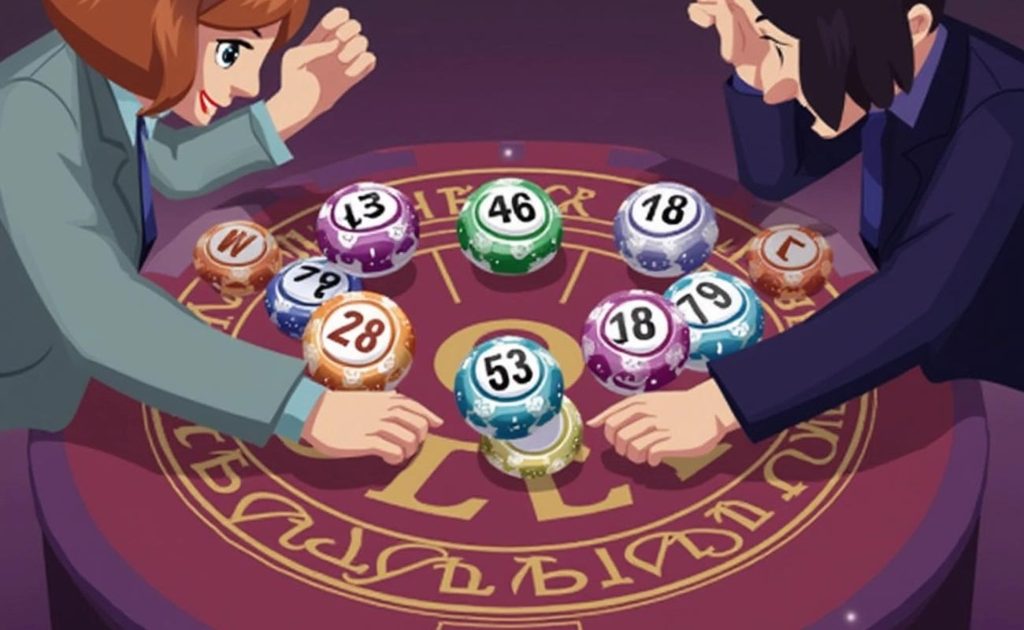Bingo is a straightforward and exciting game that is an integral part of the gambling world for years over the offline and online gambling sites. Online bingo sites making the traditional game of bingo, that has been the mainstay of social gatherings for generations, accessible to remote players on their computers, began to appear in ancient times. For instance, BingoPort, one of the only UK bingo portal to charge players for it’s service was launched shortly after in the early 2000s and built a name for itself among players who found it’s search and play function incredibly useful, along with its winning range of promotional offers.
But not every one of its attempts worked out. The ill-fated launch of “Lucky Numbers” would become one of the most infamous disasters in BingoPort history. Once hailed as an innovative twist on bingo, Lucky Numbers turned into a cautionary tale, plagued by technical difficulties, faulty payouts and a terrible user experience. What had started as an exciting addition to BingoPort’s roster soon became the stuff of players and the company’s nightmares? This failure of a bingo provider has much to teach – not only about the bingo pathogen itself but about the vices of online gaming: marketplace developers, marketers, and other nefarious bakers.
The ambitious launch of “Lucky Numbers”
Desperate to attract new players to their site in such a competitive market, BingoPort developed Lucky Numbers as it jumped on the online bingo trend in search of a unique selling point. The concept of the game was straightforward: players would select a group of numbers and, as they matched those numbers with the numbers drawn at random, they would receive payouts. What was especially attractive to bingo players about Lucky Numbers was its offer of larger than average jackpots and exciting promotional bonuses. Players were attracted by the “lucky” aspect of the game — who wouldn’t want to have their lucky numbers pop up, especially with the promise of big prizes?
The game’s marketing campaign was typical of the eye-catching, aggressive tactics that bingo portals tend to adopt. Ads advertised an easy-to-play, potentially lucrative experience, promising that Lucky Numbers would bring all the excitement of traditional bingo in an exhilarating new format. It was framed as a game that would revolutionize how people interacted with online bingo, providing something that was more engaging and rewarding than a standard number-drawing experience. So when it promised so much, players came running to the site to get in on the action.
But the experience that await them was far from the smooth, thrilling ride they had been promised.
The Red Flags: A Game Built on Shaky Ground
Lucky Numbers was a turkey from day one. The first problem players faced was the game’s technical bugs, which emerged right away. Performance is major for an online bingo and a lot more if your game is focused around live-action number draws too. Players do not want their numbers to be drawn too slowly or inaccurately, they surely do not want their winnings and claims to be processed too slowly.
Instead, Lucky Numbers hit frequent lags, freezing issues and slow load times. When players loaded into the game, the user interface frequently wouldn’t load properly, resulting in an infuriating experience long before the game was played. Pervasive complaints involved notes freezing on the screen, causing players to miss critical rounds. These disruptions were more than aggravating; they were game-breaking. Players expressed frustration, wondering whether they would ever complete a full round without running into some sort of problem.
And the problems didn’t stop there. The server performance was shaky as the game wore on, though, making the goal seem far from imminent. There are different forms of online bingo, but all have one thing in common — a need for stable server technology, which can deliver real-time gameplay. Players demand rapid advancement, live draw of numbers, and in-place result. Lucky Numbers, by contrast, suffered from lengthy waits for rounds to start and even once they began, frequent interruptions rendered this version of the game feel as if it were moving as a crawl and jarred. Players were left wondering if they would ever play the game without a technical mess, eroding trust even before the game had fully launched.
The Payout Problems: When Trust Starts Eroding
Technical problems would be bad enough, but the true undoing for Lucky Numbers arrived in the form of players complaining of problems with the payout system. When it comes to gambling games, payouts are among the most important features, and in the case of online bingo, they are also more critical because they are often directly related not only to the integrity of the game but also to the satisfaction of the player. Players expect their winnings to be processed in a reasonable and fair manner when they put their time and money into a game. Unfortunately, Lucky Numbers was anything but fair and prompt.
One of the biggest problems was that players complained of delayed payouts, sometimes waiting days to collect winnings that should have been processed instantly. Delayed payments are a big red flag in the online bingo world. Players rely on their ability to quickly withdraw their winnings, whether to use it elsewhere, or just to feel that their time and effort have yielded something for them. Many players began questioning the integrity of the game as these delays continued. Were the winnings legitimate? Were the odds truly fair? Or was the game fixed to ensure low payouts?
Last month, a few users claimed that the rewards they collected exceeded the requirements but they only received unpaid bonuses. These misses, compounded by the delays in payment, resulted in a breaking of the trust between the platform and its player base. The complaints got louder as players started to notice their wins weren’t being processed. Lucky Numbers was no longer viewed as a fun, exciting game, but rather a mark of unreliability and frustration.
Broken Promises and a Bonus Debacle
One of Lucky Numbers’ biggest selling points had been the lucrative bonuses and rewards that were offered to new players. BingoPort pitched the game as an opportunity to get “lucky” not just by playing, but also by accruing bonuses that could help them make more money as they played. This is one of the most common tricks used in the online gambling industry to lure in new clients and persuade them to stay. Sadly, BingoPort’s claims concerning bonuses were more fiction than fact.
Many players said they either never got the bonuses that had been promised to them or struggled to redeem the bonuses when they did receive them. For instance, players were informed they could expect to receive specific amounts as bonuses just for signing up or making their first few deposits. However, when it came time to collect those bonuses, players were faced with terms and conditions that were blurry, confusing or downright impossible to meet. In some instances, the bonuses never appeared at all, and when players reached out to customer support they were informed that there had been a “glitch” or that the bonuses had been offered only in very specific circumstances that had not been made clear.
For players that were potentially being taken advantage of, the bonus system being withheld from view felt like a tremendous let down. It was a clear breach of the trust that had not been gained once, but were built over the years by BingoPort with its audience and the players. That left bingo players, who generally prefer simple, feeling disenfranchised.” This frustration, along with the shoddy technical performance and payout issues, led many of players to ditch Lucky Numbers for more reliable platforms that provided you with clearer bonus structure and timely payouts.
Customer Service Woes: The straw that broke the camel’s back
But when there were problems with the game — be it a technical problem, a payment issue, or a bonus matter — players sought help from BingoPort’s customer service. Sadly, the support staff was slow, and many players soon realized that their inquiries were ignored or received insufficient/failure response. Just like any online bingo websites, BingoPort needs responsive and helpful customer support so it can help resolve any issues that arise but BingoPort’s customer service team was up to the task.
Players seeking to address their issues would frequently receive no response, or, even worse, generic, half-hearted responses that not only didn’t solve the problems they were experiencing, but also might not be relevant to them at all. If customers are having payment or technical issues, the last thing they want is to be met with indifference. However, the limited customer support made many players feel neglected and insignificant.
To make things worse, BingoPort’s reputation as a trustworthy site had already suffered because of the technical glitches and payout delays. With no support from customer service teams, players had nowhere else to turn but online forums and social media to vent their frustrations. But before long, the negative chatter around Lucky Numbers took off like wildfire, further hindering the game’s chances of success.
The Last Nail in the Coffin: Betrayal of Trust and Defection
By the time BingoPort tried to resolve the issues with Lucky Numbers, there was no saving it. The damage had been done. Players had moved on to other bingo sites, who offered a better user experience, and the game had lost their trust. Even when they tried to fix the technical issues with the game, the damage to their reputation had already been done. Players were reluctant to spend their time or money on a game that had already demonstrated itself to be unreliable.
Ultimately, Lucky Numbers was discontinued without fanfare, but its short life will go down as one of the great disasters of online bingo. To BingoPort, it was a case of reining in expectations to ensure that it served fundamentals over fancies and place gameplay, fairness and customer trust high above just delivering on promises.
What BingoPort’s “Lucky Numbers” Can Tell Us
Lucky Numbers’ demise comes with several important lessons for all those operating in the online gambling space:
In any case, the online bingo market is a highly competitive one, and Lucky Numbers serves as a timely reminder that a couple of missteps in crucial areas — technical performance, customer satisfaction and fair payouts — can result in an epic fail no matter how appealing the game may seem in the first place.






